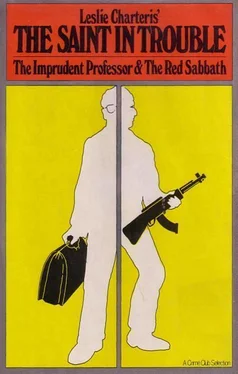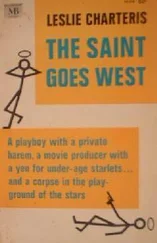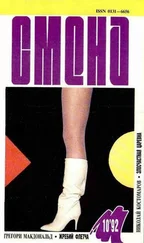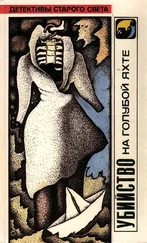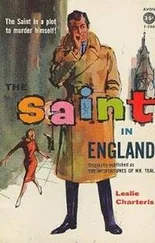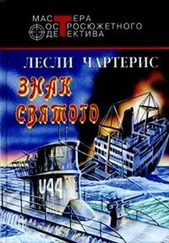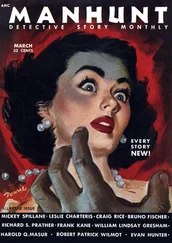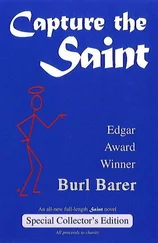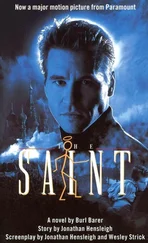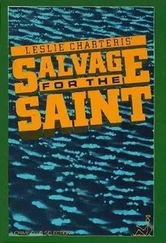Simon Templar danced. With his arms hanging loosely at his sides, he relied on sheer speed and agility to escape the murderous assault Hakim mounted. He bobbed and weaved and rode the blows measuring distance to the micro-fraction of an inch. And all the time he smiled impudently at his assailant; and the more he smiled, the more angry the Arab became and the more erratic his attacks.
The commotion had attracted the inevitable crowd that always seems to appear as if from the air when seconds before there was no one in sight. They gathered at a safe distance, gaping at the spectacle but not eager to get involved.
It could have been great fun for all, but it had to be cut short. The Saint quickly moved in and proceeded with some relish to take the terrorist apart with a few bruising body punches that ended Hakim’s wild swings and drove the Arab cowering back against the cold stone of the river wall. The Saint felt no pity: Hakim was more than just one man, one murderer. He symbolised his breed; so brave when faced with helpless hostages, the young and old and weak, with the job of planting a bomb to go off when he was well away, but with no stomach for face-to-face conflict on equal terms.
At that moment the Saint was aware of the unmistakeable throaty growl of the Hirondel. It stopped beside them with a scream of protesting rubber and he turned to see Yakovitz climb out of the driver’s seat.
“Here’s your excess baggage,” he called out, and while Yakovitz opened the rear door he sent a final left hook jolting into the point of Hakim’s chin.
As the Arab slid earthwards, the Saint caught him by the collar and the seat of the pants to throw him headfirst into the car. Yakovitz jumped in on top of him, and the Saint slid in behind the wheel and took the big car roaring away, scattering the spectators from its path.
The entire spontaneous pickup was accomplished as neatly as if they had rehearsed it, and the Saint chortled with delight.
“Right on cue! I was beginning to wonder what I was going to do with him. What happened back there?” he asked as he forced a way through the traffic clogging Southwark Bridge.
Yakovitz answered slowly as if embarrassed to admit his failure.
“Captain Zabin stayed to deal with the third man while I chased Masrouf and Khaldun. They split up, and I followed Masrouf, but I lost him in the alleys, so I went back to help her. By the time I got to the market again there was no sign of her, but two policemen were arriving. I went back to your car and came looking for you.”
“And you have no idea what happened to Leila?” Simon asked, frowning.
Yakovitz shook his head.
“No. As I said, when I got back after losing Masrouf there was no sign of her. She may have slipped away when the police came, or she could have followed the other man somewhere. I did not see your friend Harry, either.”
“That’s some consolation, anyway,” Simon remarked. “Harry isn’t the sort of person who’d join in, but neither is he the type who cuts and runs when the going looks rough. I hired him to follow and watch, and that’s probably just what he did, he’ll make contact later. He should be able to tell us where Leila went.”
“Captain Zabin is one of our most experienced operatives,” said Yakovitz stiffly. “I am sure she will be all right.”
“So am I,” Simon agreed.
He could tell that Yakovitz’s assumption of his superior’s safety was based more on loyalty than logic, and he also was somewhat less confident than he cared to show.
He drove through the City and headed east until they reached the main Newmarket road. After a few miles the long lines of houses and shops began to peter out and they entered the brown and green woodland of Epping Forest.
“Do you know how to find the house that Captain Zabin was talking about?” he asked presently.
“If you find the Bell Post House first, I can direct you.”
The Saint had once stopped at the hotel at Bell Common, and with that as an easy landmark, he could relax for a while into almost automatic driving. There were no interruptions from Hakim, but from certain movements that he occasionally glimpsed in the rear-view mirror, he had the impression that Yakovitz was taking such steps as were necessary, from time to time, to ensure that the terrorist remained in the comatose state to which the Saint’s punishment had reduced him.
The woods gradually gave way to fields of wheat and corn that stretched away into the distance with only an occasional tree or barn breaking the shallow contours of the landscape. As they moved farther from the forest and deeper into the farmlands it was almost impossible to believe that they were only an hour from the centre of London.
Yakovitz seemed disinclined for idle conversation, and the Saint used the silence to assess the situation. Whichever way he looked at it, he realised that the game was still far from over. They had succeeded in grabbing Hakim, and therefore whatever happened next, they held the trump card. They had the added advantage that Masrouf and company could have no idea where they were taking Hakim. Leila was the only problem; and the more Simon considered her disappearance, the more uncertain he became that his side would be able to completely dictate the next move.
From the Bell Post House, he followed Yakovitz’s directions until they swung onto a rutted, unpaved road that wound through a thin belt of trees to peter out before a pair of tall iron gates that were the only break in a high redbrick wall. Beyond the gates, a gravel drive swept in a wide arc for some three hundred yards until it reached an elegant white stone house of the sort that real estate agents are moved to call a luxurious country residence.
As soon as the Hirondel stopped at the gates, two men emerged from the shelter of the wall. Both carried shotguns, and while one levelled his weapon at the occupants of the car, the other opened one gate and walked over to the driver’s side of the car. He scrutinized the pass that Yakovitz extended and finally nodded to his companion, who lowered his gun and opened the other gate. The man who had come out spoke briefly into a two-way radio that he took from his breast pocket and waved them through.
Hakim was beginning to come around once again by the time they pulled up at the portico but he offered no resistance when Yakovitz dragged him roughly from the car and half carried, half dragged him up the wide steps.
Inside, the air was stale and heavy with the tang of mothballs and sickly smell of fresh paint. The furniture was hidden under white dust sheets, and there were ladders propped against the walls. Their footsteps echoed as they crossed the uncarpeted hall and went through a rear door to the kitchen. The room contained only a table and a few plain wooden chairs, a gas stove on which simmered a battered coffeepot, and an open larder whose shelves were stacked high with tinned food. A telephone and a small radio transmitter slightly larger than the one worn by the guard at the gate stood on the table.
Two men rose to greet them as they entered. Yakovitz dumped his prisoner in a chair and while one of the men tied the Arab’s hands and feet he told them the basic details of what had happened.
The Saint poured himself a cup of coffee and sat in a chair opposite Hakim. The Arab was wide awake now, and Simon could see the fear behind the defiant set of his features. It was a unique experience, for him, to have the privilege of observing a thoroughly terrified terrorist, and after the wanton assault on his home he wouldn’t have missed it for anything.
“So what do we do now?” he enquired genially. “Is it going to be castration with red-hot spoons or a simple force-feeding with boiling oil? Or do you boys have something more scientific to offer?”
Читать дальше
